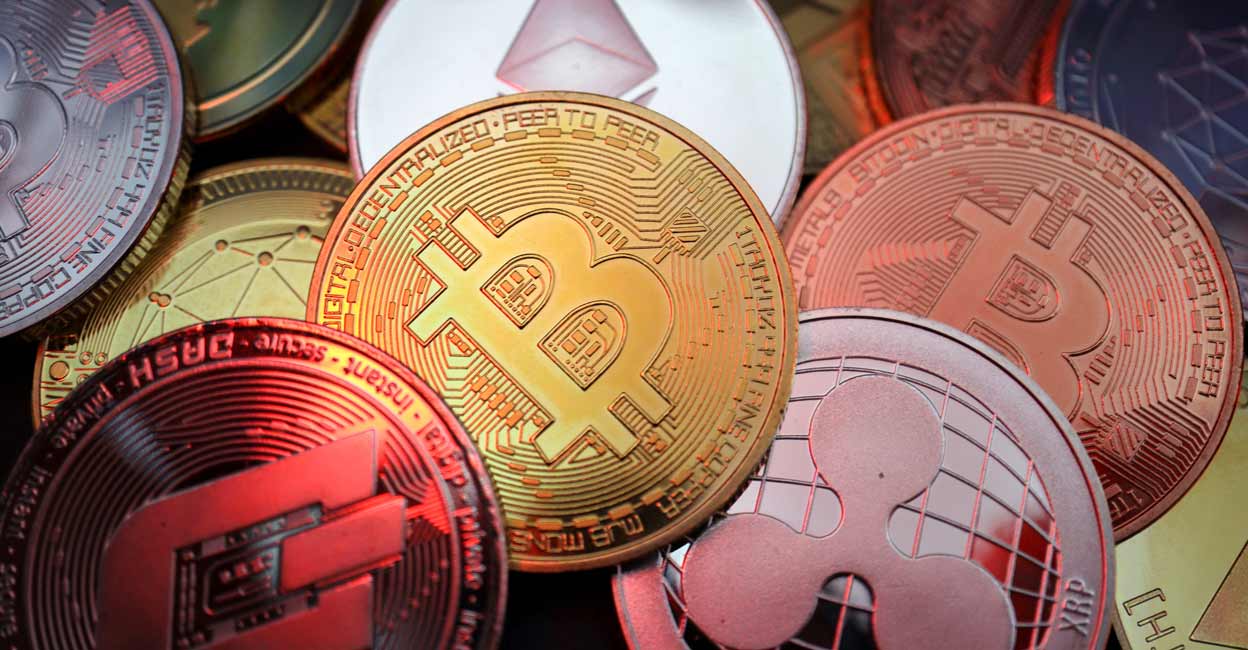Your guide to cryptocurrency: Future of crypto in India, reasons for high demand and how to prevent fraud
The rise of cryptocurrency is a keenly watched economic trend in the pandemic-hit financial world. Crypto transactions gained momentum in India too after the Supreme Court, in 2020, overturned the Reserve Bank of India’s 2018 order that banned financial institutions from crypto transactions.
But rumours of governmental control on crypto trading gained momentum on Wednesday following the Union government’s announcement that a bill to ban private cryptocurrencies will be introduced in the winter session of the Parliament, beginning on November 29.
In this context, cryptocurrency expert, Sunil Raveendran, who works with a Technopark MNC in Thiruvananthapuram, explains the nitty-gritty of digital currency. Here, he tells us about crypto exchange, cryptocurrency’s emergence as an asset class, reasons for rise in its demand, how to prevent fraud and the future of the digital currency in India.
Read the first part of the explainer to know what cryptocurrency is, how its value is decided, what is its importance and what is Bitcoin.
How did cryptocurrency emerge as an asset class?
Currency, gold, oil and stock are the major asset classes. After the 2008 recession, investors appear to have lost trust in these asset classes. Crypto capitalised on this trend. Its value has increased to $3 trillion this month. It has emerged as a strong asset class.
Moreover, a paradigm shift has happened in the crypto world. Until recently, only retail investors and crypto enthusiasts used to show interest in the ‘native digital currency’. Now, institutional investors (people who are managing money for the wealthy people) have evinced interest in this.
What are the reasons for the rise in demand for cryptocurrency around the globe?
It’s interesting and important to understand socio-economic factors that intensified the adoption of Bitcoin and other crypto currencies across the world.

Original idea behind Bitcoin was to nurture an alternative payment system that would enable greater privacy, anonymity, and autonomy. Later, people realised its financial potential as an asset class and speculative trading instrument.
Bitcoin’s novelty as a payment system is due to its relatively low foreign-exchange transaction costs, and its independence from government authorities or third-party forex intermediaries, such as Western Union. As an asset class it increases opportunities for portfolio risk management due to its limited correlation with other asset classes such as stocks, bonds etc and offers hedging against economic uncertainty.
As a global currency not tied to any country, bitcoin has the potential to act as a hedging opportunity against country-specific risks. In particular, it offers an opportunity to hedge against very high inflation.
Further, the anonymity that technology behind cryptocurrency offers makes it an interesting option for actors pursuing activities of illegal trade such as smuggling.
What is a cryptocurrency exchange?
They are online platforms that facilitate cryptocurrency trading in exchange for digital or fiat currencies. They act as an intermediary between a buyer and a seller. In that process, they charge a commission or transaction fee.
Some of the exchanges accessible in India are: WazirX, CoinDCX, and CoinSwitch Kuber.
Why are cryptocurrency frauds rampant?
Fraudsters eye all asset classes as a means to make easy money. We have heard plenty of reports about gold smuggling and bank fraud. Crypto fraud can be considered as an extension of this.
I think lack of awareness among crypto traders is helping the fraudsters. People without digital literacy turn to cryptocurrency as a means to make quick bucks and this is the main reason for frauds.

Be aware that cryptocurrency is one of the riskier investment choices out there.
Before you invest even a rupee, you should learn about cryptocurrency exchanges. There are hundreds of them. Make a wise choice. You should learn how to store your digital currency. You should also be prepared for drastic swings in the market.
What is the future of cryptocurrency in India in the wake of the government decision to bring in a new bill?
The cryptocurrency bill, to be introduced in the winter session of the Parliament is likely to prohibit all the private cryptocurrencies in India, with certain exceptions. The exceptions are intended to promote the underlying technology – Blockchain – and its uses.
While the 2019 bill titled The ‘Banning of Cryptocurrency & Regulation of Official Digital Currency Bill, 2019’ suggested a blanket ban, the 2021 bill titled ‘Cryptocurrency and Regulation of Official Digital Currency Bill, 2021’ has no reference to banning. This reflects the substantial growth and participation cryptocurrency market has seen in India.
The government is likely to treat crypto as an asset class and not as a currency. This will also give the government an opportunity to get tax returns on crypto assets.
I’m also positive that regulations will bring more transparency and accountability on crypto trading platforms, and provisions to monitor cross-border transactions. Checks and balances to reduce fraud and safeguard investor interest is also another possibility.
(Disclaimer: Views expressed by Sunil Raveendran are personal.)
For all the latest business News Click Here

